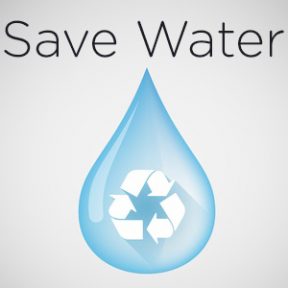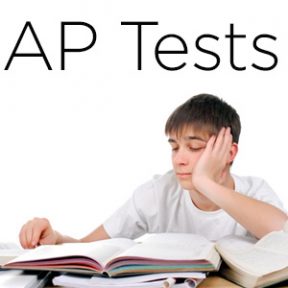 I love the way indoor plants clean the air and create a healthy living space. My guests notice that I have green plants everywhere so they think I have a green thumb. But, if they looked closer, they’d notice that that sea of green is really the same 2 plants! Yup, I couldn’t keep any of those exotic and beautiful plants alive and quite frankly, I got tired of spending 100s of dollars on plants that just died a few months later. So I took clippings from the only 2 plants that could survive under my black thumb and put them in water. A few weeks later, I took those clippings and put them in potting soil and voila – the plants thrived. I’ve never repotted them and never given them fertilizer. I’m serious, all they need is water and indirect sunlight.
I love the way indoor plants clean the air and create a healthy living space. My guests notice that I have green plants everywhere so they think I have a green thumb. But, if they looked closer, they’d notice that that sea of green is really the same 2 plants! Yup, I couldn’t keep any of those exotic and beautiful plants alive and quite frankly, I got tired of spending 100s of dollars on plants that just died a few months later. So I took clippings from the only 2 plants that could survive under my black thumb and put them in water. A few weeks later, I took those clippings and put them in potting soil and voila – the plants thrived. I’ve never repotted them and never given them fertilizer. I’m serious, all they need is water and indirect sunlight.
So what are these plants?
POTHOS
Good news is that you can buy one plant at a garden center and then take cuttings and fill your house with the new plants forever – literally. I have them in pots all over the house because they can survive in low light offices and bedrooms as well as well-lit kitchens.
SPIDER PLANTS
I love my spider plants because they love bathrooms and low-light areas. They shoot out little plants (spiders) that you can clip, put in water for a few weeks, and start a new plant.
For very little money, you can make your home or office a healthier place to live and work. These plants are very low maintenance – all they need is weekly watering and sunlight.
Happy planting!

 I love the way indoor plants clean the air and create a healthy living space. My guests notice that I have green plants everywhere so they think I have a green thumb. But, if they looked closer, they’d notice that that sea of green is really the same 2 plants! Yup, I couldn’t keep any of those exotic and beautiful plants alive and quite frankly, I got tired of spending 100s of dollars on plants that just died a few months later. So I took clippings from the only 2 plants that could survive under my black thumb and put them in water. A few weeks later, I took those clippings and put them in potting soil and voila – the plants thrived. I’ve never repotted them and never given them fertilizer. I’m serious, all they need is water and indirect sunlight.
I love the way indoor plants clean the air and create a healthy living space. My guests notice that I have green plants everywhere so they think I have a green thumb. But, if they looked closer, they’d notice that that sea of green is really the same 2 plants! Yup, I couldn’t keep any of those exotic and beautiful plants alive and quite frankly, I got tired of spending 100s of dollars on plants that just died a few months later. So I took clippings from the only 2 plants that could survive under my black thumb and put them in water. A few weeks later, I took those clippings and put them in potting soil and voila – the plants thrived. I’ve never repotted them and never given them fertilizer. I’m serious, all they need is water and indirect sunlight.
So what are these plants?
POTHOS
Good news is that you can buy one plant at a garden center and then take cuttings and fill your house with the new plants forever – literally. I have them in pots all over the house because they can survive in low light offices and bedrooms as well as well-lit kitchens.
SPIDER PLANTS
I love my spider plants because they love bathrooms and low-light areas. They shoot out little plants (spiders) that you can clip, put in water for a few weeks, and start a new plant.
For very little money, you can make your home or office a healthier place to live and work. These plants are very low maintenance – all they need is weekly watering and sunlight.
Happy planting!

 I’m not sure how I became the family travel agent because I really don’t like spending hours searching for great deals. But, I found a website that offers great tips and resources. Check out these websites:
I’m not sure how I became the family travel agent because I really don’t like spending hours searching for great deals. But, I found a website that offers great tips and resources. Check out these websites:
BEST WEBSITES:
Kayak.com – best for flights, multiple destinations, flexible dates
Google Flights – best for discovery
Vayama.com – best for great deals
Expedia.com – best for vacation packages
LISTS FOR SALES:
Airfarewatchdog.com
Travelzoo.com
BUDGET AIRLINES:
WhichBudget.com
Cheap Flights Route Map on Skyscanner
GOOGLE SEARCH:
Search for your exact flight: “Flight sale from San Jose to Maui” to get super fares through other programs.
CHECK AIRLINE WEBSITES:
Before you book your tickets on a 3rd-Party website, check the actual airlines to see if they have cheaper tickets.
WHEN TO BUY?:
Shop on Tuesdays at 3:00 pm for lowest fares (Monday night to Thursday window) Domestic: 6 weeks before flight (never before 3.5 months or you’ll pay full fare)
Europe: 21 weeks before flight (never before 4-5 months or you’ll pay full fare)
Caribbean: 11 weeks before flight (never before 4-5 months or you’ll pay full fare)
International Business/First Class: 23 weeks before flight
If you purchase tickets inside of 14 days before flight, rates will be dramatically higher.
Happy travels! If you have any other tips to share, let me know and I’ll post them here.
 Back in 2008, he did crazy things!
Back in 2008, he did crazy things!
On his Ducati, Sam was doing gymnastics — at 70 mph! We were heading down to southern California with Jaclyn and all of her stuff for her sophomore year at CMC. Afraid that he might do something really dangerous, we stopped looking at him. Kids! Or, rather, men.
Remember: the only difference between men and boys, is the price of their toys!
Glad he’s settling down and getting married!
 I realize that everyone – that includes YOU – is busy. And I know you’re REALLY BUSY – making money, maintaining your home, helping your kids and parents. I get it. What I don’t get is that my very intelligent, socially correct, politically active friends and family AREN’T LISTENING to the most important message about our future civilization.
I realize that everyone – that includes YOU – is busy. And I know you’re REALLY BUSY – making money, maintaining your home, helping your kids and parents. I get it. What I don’t get is that my very intelligent, socially correct, politically active friends and family AREN’T LISTENING to the most important message about our future civilization.
Yep, and that future civilization consists of our children, grandchildren, and everyone else! So why aren’t our politicians, corporations, and friends scrambling to fix our climate change problem?
I honestly don’t get it!
What can be more important than diverting the massive devastation that we are facing in our lifetimes? We aren’t making the dramatic changes to reduce our carbon emissions TODAY so that we will be able to enjoy making money, maintaining our homes, and helping our kids and parents. Here are some facts that should scare the bejeezus out of you:
February didn’t just break climate change records – it obliterated them.
- Regions of the Arctic were more than 16℃ warmer than normal; whatever constitutes normal now.
- February was the third consecutive month to break global temperature records.
- North of the equator was 2℃ warmer than pre-industrial temperatures (we passed the line…)
- In 2015: largest CO2 increase in hundreds of thousands of years
- CO2 level reached 404.02 ppm (up 1% from 2015) in Mauna Loa, HI
WAKE UP! Denial will only ensure that the fossil fuel industry (oil companies, fracking industry, car manufacturers, politicians) will stay on this terminal course until they extract the last drop of oil and squeeze the last dollar out of the earth. Their plan to phase out oil and natural gas (methane) and to offer clean energy will be decades too late. I’ve seen their brilliant marketing campaigns to fool us into thinking that they have a sustainable plan, but it’s all smoke and mirrors.
I always like to offer solutions when I deliver depressing news like this. In the next few weeks, I will share with you a game changer. I’m still researching its viability and statistics before I publicly support this breakthrough in energy production. Can’t wait to tell you… I am so excited about its possibilities that I am up at night laying out plans and wrapping my head around how to implement it worldwide as soon as possible. More real soon!
[Source]
 If you’re going to a UC this fall (as a freshman), you’ll need to take the Analytical Writing Placement Evaluation (AWPE) this Saturday, May 14th.
If you’re going to a UC this fall (as a freshman), you’ll need to take the Analytical Writing Placement Evaluation (AWPE) this Saturday, May 14th.
This written test determines whether or not you can begin to take college-level English classes this fall.
You don’t need to take the AWPE if you’ve satisfied one of the following requirements:
- 30 or better on the ACT, English Language Arts; or
- 30 or better on the ACT, Combined English/Writing (last administered June 2015); or
- 680 or better on the College Board SAT Reasoning Test, Writing (last administration January 2016); or
- 3 or above on either Advanced Placement Examination in English; or
- 5 or above on an International Baccalaureate Higher Level English A: Literature exam (formerly known as Higher Level English A1 exam); or
- 6 or above on an International Baccalaureate Standard Level English A: Literature exam (formerly known as Standard Level English A1 exam); or
- 5 or above on an International Baccalaureate Higher Level English A: Language and Literature exam; or
- 6 or above on an International Baccalaureate Standard Level English A: Language and Literature exam
To find a test center near you and to register for the AWPE, go to http://www.ucop.edu/elwr/.
 Yes! Here’s a true story.
Yes! Here’s a true story.
When I first started working with Michael Beck in 2011, he was dropping out of classes at a local community college and his mother was beside herself with anxiety. She knew Michael was smart but couldn’t understand why he just didn’t do the work to pass his classes.
I knew as soon as I met Michael that he was going to be a huge challenge because he was bright but couldn’t understand why he should do mundane busy work in classes that he wasn’t interested in taking. Hmm. Sometimes it’s difficult to reason with logic. My goal was to get Michael to find his passion, layout a plan to achieve it, and coach him as he had to retrain and rethink his education.
Michael bombed out in high school because he didn’t go to classes or do his homework – he preferred to smoke weed and drink with his friends. The only reason he graduated from high school was because he could always take the final exam and pass it (remember, he’s really smart). Getting him to adopt the Merit Planner and stick to a schedule so he can learn concepts, do assignments, and prepare for difficult college exams was a constant battle. I knew I couldn’t trick him into studying, I needed to capture his attention and give him a reason to do the work.
After many discussions about politics and environmental issues, Michael became concerned about Climate Change and headed the Kids 4 Hydrogen team to find solutions to the world’s energy and CO2 problems. He met with PhDs to learn all that he could about hydrogen production and fuel cells. When he realized how engineering was going to give him the skill set he will need to solve some of these major issues, Michael got serious about his education. Instead of fighting professors about the value of each assignment, he just did it. He started getting A’s in all of his classes, and that’s when he recognized that he understood concepts in ways that his peers didn’t. This was a turning point for Michael.
After Michael took the chemistry series at UCSC in one summer and got all A’s, he knew he was on to something exciting. But when he was ready to apply to transfer into an engineering program, he worried that his terrible grades from his past would haunt him. Thankfully, the University of Portland recognized his potential (love it when colleges look beyond GPAs) and Michael thrived in the mechanical and electrical engineering programs. He was clearly one of the top students in his program when he graduated a few weeks ago. Michael had developed good relationships with his engineering professors and enjoyed intellectual discussions with them outside of the classroom.
Michael is going to study robotics in grad school and he has been accepted to all of the graduate schools that he applied to. These acceptances include the prestigious GRASP Robotics Lab at UPenn and the world-renowned Robotics program at Carnegie Mellon. They both offer the best robotics programs in the country. I know that Michael will blossom in grad school because he will be working with peers and professors who share his passion for learning and solving critical problems. I am so proud to watch this kid who fought the system and was heading down a destructive path, now head off to an Ivy League college (or CMU) this fall.
I can’t wait to see what he does in grad school, and I just know he will change the world.
 I always thought that growing mushrooms was smelly business.
I always thought that growing mushrooms was smelly business.
There used to be a local mushroom farm down the road and when the wind shifted, the unpleasant smell of manure filled the air. For that reason, I never considered growing mushrooms.
But just 2 weeks ago, I bought a shiitake mushroom kit because it was so easy and convenient. It had a block with mushroom spores placed in a clear plastic bag. All I had to do was snip holes in the plastic to allow air circulation, and that was it.
There was no putrid smell, and the mushrooms grew rapidly. In just 10 days, I harvested a huge bag of beautiful mushrooms.
I sautéed them in butter and garlic, and they were the best mushrooms I’d ever eaten! You can order these mushroom kits at FarWestFungi.com.
I’m taking the plunge and trying a more involved growing environment that uses fresh cut hardwood branches and ¼” mushroom spore plugs. Wish me luck!

 Living in California in one of the worst droughts in history is worrisome. Even though we’ve had a lot of rain this year, it’s all thanks to El Nino.
Living in California in one of the worst droughts in history is worrisome. Even though we’ve had a lot of rain this year, it’s all thanks to El Nino.
Our water tables are low and farmers have pumped so much water that land masses are buckling and surface patches are sinking. Don’t be fooled by seeing rivers and lakes at normal levels this year because the real problem is the vast reservoirs beneath the surface. So what can you do? Use the water from your tap TWICE before it goes down the drain. Here are 2 easy ways to save between 3-6 gallons of water per person each day.
#1: Sinks
Capture the water you run while you’re waiting for the warm water in your tap. In your bathroom, place a plastic tub or bucket under your faucet to catch the water as you brush your teeth and wash your face. In the kitchen, place a pitcher or bucket to catch the water while you wash veggies or rinse dishes.
When the buckets fill up, water plants or fill up buckets in the bathroom to flush toilets later.
#2: Showers
Fill up buckets as you wait for the hot water before showering. Depending on where your hot water heater is located, it may take 1-2 gallons of water before the water is warm enough to step into your shower. Then, as you shower, place a bucket in front of you and one behind you to capture water as you wash your hair. With my long hair, I can fill up 3 buckets of water just to wash my hair!
When I’m done with my shower, I use these buckets to flush the toilet all day and night. I don’t use any domestic water to flush the toilet!
You can buy 1-gallon buckets at a dollar store and create this water-saving system for under $10. So lather up and capture your water. You’ll reduce the water you use and possibly prevent $500 water fines!

 If you’re a parent of a high school student, you’re probably counting the days until the last AP test. Kids are stressed out about taking these standardized tests that they think will make or break their chances of getting into a great college. First of all, colleges now realize the dilemma they’ve caused by encouraging students to take AP classes, and they’re retracting their previous admissions rubrics. What really bothers me about AP courses is how they’re taught and what students do to ensure a score of 4 or 5 (on a scale of 1-5). AP classes instill the antithesis of what education and learning is all about.
If you’re a parent of a high school student, you’re probably counting the days until the last AP test. Kids are stressed out about taking these standardized tests that they think will make or break their chances of getting into a great college. First of all, colleges now realize the dilemma they’ve caused by encouraging students to take AP classes, and they’re retracting their previous admissions rubrics. What really bothers me about AP courses is how they’re taught and what students do to ensure a score of 4 or 5 (on a scale of 1-5). AP classes instill the antithesis of what education and learning is all about.
Teachers require students to memorize textbooks, workbooks, readers, flashcards, and other materials and drill the students starting on the first day of classes in August and continue until late April. The teachers only cover what is expected to be on the test so students don’t have the opportunity to research or engage in interesting discussions about the subject matter. As a matter of fact, students pressure their teachers to stay focused and only teach what they absolutely need to learn. When teachers add interesting stories as a tangent to the core material covered in class, students and their parents actually complain. Huh? It’s really a high-stakes game for everyone. Students need to score high for their college applications and the school evaluates the teachers based on how well the students score on the AP tests.
One of my clients created a formula to memorize the years each US president held office (really?) and then an acronym to memorize the presidents’ party affiliations (does this need to be memorized?). “Good” teachers give extra credit points to students who get 100% on the presidents test. So both teachers and students hyper focus on memorizing names, dates, places, and events. Parents and students love “good” teachers because they organize a fail-proof plan to ensure that the students memorize all of the information and prepare them to answer the multiple-choice questions. They require students to write “AP” essays and memorize terms.
The students neither have time nor interest in learning anything that is not covered on the test. It kind of reminds me of the Chinese education system. With classes of up to 80 students, the teachers only teach concepts that can be drilled and memorized. Students don’t conduct research or do any type of analysis simply because the teachers couldn’t grade it. Teachers don’t ask analytical questions or require students to speculate or solve philosophical, political or social issues. This type of education certainly doesn’t inspire students to create, solve, or imagine.
Our kids need to explore concepts and delve deep into the sciences and humanities. At Merit Academy, our full-time students aren’t allowed to take AP classes because we want them to learn the material without wasting the entire year preparing for a standardized test. The universities appreciate the depth and breadth covered in our Honors courses and our students aren’t penalized for not taking a zillion AP classes. Learning should be fun and interesting. It breaks my heart to hear so many kids tell me they hate English, history, or the sciences. AP classes are destroying curiosity and innovation.
 With so much press about GMOs in our food – even our organic and supposedly “healthy” food — how do we know what’s safe to eat?
With so much press about GMOs in our food – even our organic and supposedly “healthy” food — how do we know what’s safe to eat?
I try to eat as healthy as the next person but keeping up with which fruit has pesticides, and when I should definitely buy organic or when it’s safe to buy non-organic produce is confusing. Organic veggies are really expensive so I’ve been looking for a reliable source. Check out EWG’s recommendations for Buy Organic and Buy Non-Organic.
Sneak Peek: Avocados are the safest!










